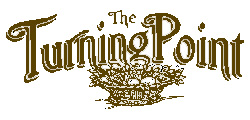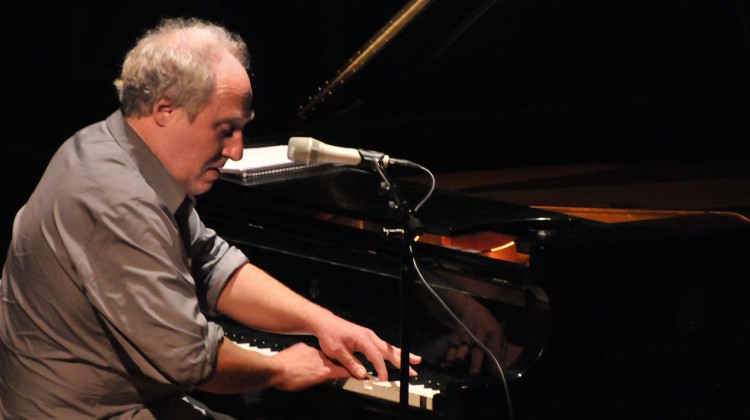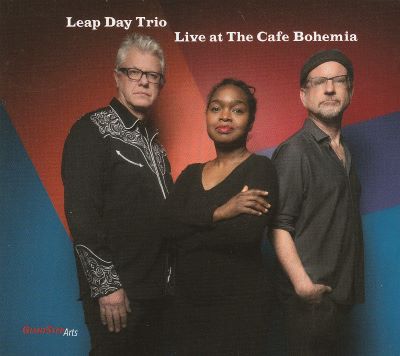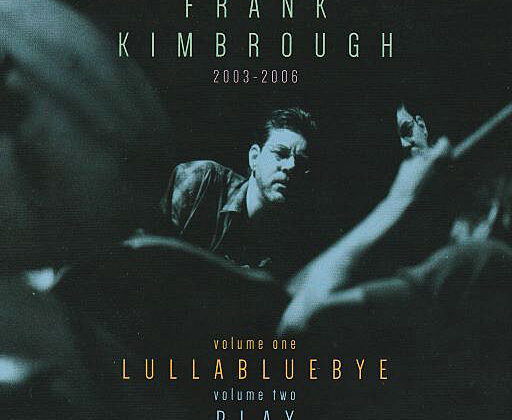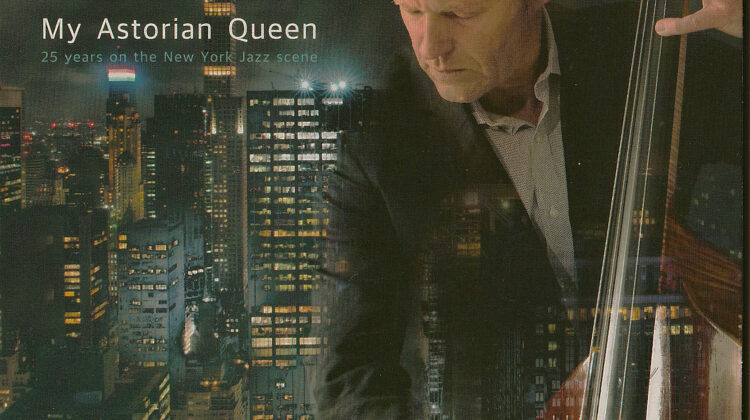Talk about concision! The title of Matt Wilson’s most recent album, hug! summarizes in one word a wealth of content.
It’s a bookend to the title of Wilson’s 1999 album, Smile, which similarly converts his positive outlook into musical exuberance. Hug! values human contact, which everyone sorely misses during the COVID-19 pandemic, but which can nonetheless be achieved in another way through music. The hug! can convert the darkness of current events through the relaxation, therapeutic as it may be, that a sunny outlook in spite of it all creates. And a hug, which like music may be wordless, establishes closeness, especially uninhibited among family members, at least before “social distancing” became a warning for attempting to defeat the virus.
Wilson is fond of calling his musical partners part of his “Big Happy Family.” True to himself, each of Wilson’s fourteen albums has brought in facets of his background and his personality–his being–from the poetry of Carl Sandburg to the music of his influences like Don Cherry to the football-game “Charge!” of a high-school marching band to the screech of a porch swing.
Unconventional and unpredictable as always, Wilson nonetheless maintains his own inimitable style on hug! with the big-family happiness that defines his love of humanity and his associated love of music.
The sequence of tracks on hug! proceeds from Wilson’s interpretations of jazz icons’ compositions to his own works, wacky and fun and angular and unpretentious and straightforward and joyful.
Joining Wilson in those interpretations are like-minded musicians from his recordings of decades ago until now: reedman Jeff Lederer, cornetist Kirk Knuffke and bassist Chris Lightcap. In addition, it must be noted that Wilson is releasing hug! on the Palmetto Records label, on which his first album was recorded in 1996, thereby including in his Big Happy Family from the start of his career even his original producer. That producer, Matt Balitsaris, deserves credit for supporting the idiosyncratic vision of the 32-year-old Wilson when he proposed for his unusual first jazz album, As Wave Follows Wave (with foreshadowing, the title of a Carl Sandberg poem) pieces like “Free Range Chicken,” “Bingo” (as in “I’ve got a BINGO!”) or “Mr. Zimmerman’s Farm.” Of course, it helped that Dewey Redman, Cecil McBee and Larry Goldings, Wilson’s early acquaintances after his move from Kansas to New York City in 1992, played on the album too.
With undiminished spontaneity, generosity among musicians, good-natured zaniness, performance-driven energy and a natural distinctive talent that has distinguished Wilson’s contributions to over 400 albums with a dizzying array of jazz artists, lack of pretention appears to be an immediately apparent characteristic of the albums he leads. On his fourteenth album, Wilson transforms the music of jazz forebears to contemporary terms, or he presents his own inspired compositions.
Starting off Hug! is “The One Before This” from the Gene Ammons/Sonny Stitt album, Boss Tenors. Wilson’s quartet wittily adapts the legendary sax battles between the two saxophonists to brief lightly swinging solos with a staccato choruses as an introductory embrace, rather than as competitive jabs. Wilson chose not one of Charlie Haden’s gorgeous meditative pieces like half-noted melody of “Silence,” but rather, at a quicker tempo, the quarter-noted rising and falling intervals of Haden’s “In the Moment.” Succinct enough, the track lasts but three minutes, yet that’s sufficient time to recognize the memorable presence of Billy Higgins on Haden’s first Quartet West album. Also, it serves as a tertiary tribute to Paul Motian, honored on Steve Cardenas’ 2018 album, Charlie & Paul, on which Wilson performed.
As would be expected, Wilson, jubilant himself as inspired by the music, appreciates the jubilation of Abdullah Ibrahim’s South African vibe, and so he includes from 1968 the vertiginously danceable “Jabulani” (which means, of course, “Joy”). After acknowledging in punctuating unison “Jabulani’s” melody, Wilson’s version, again substituting cornet/sax for John Tchicai and Gato Barbieri’s sax/sax, frees the quartet for free-improv interpretations of their own. The South African folk song, “Hambe Kahle” (“Go well”), mirrors “Jabulani” not only in origin, but also in its positive spirit, maintained by Wilson’s backbeat and Lightcap’s resounding vamp to Knuffke’s melody and Lederer’s sweetness on soprano sax.
Just as appropriately titled for this well-wishing album is the inclusion of Redman’s “Joie de Vivre” (a remembrance of his “zest for life” that involves a person’s entire spirit) from Redman’s 1974 Coincide album. Played with straightforward respect, Lederer (on tenor sax this time) and Knuffke break up the melody until joining in harmony at the repeats.
Perhaps as an interlude, Wilson surprisingly includes Roger Miller’s “King of the Road,” rarely heard any more but an earworm that has stayed with Wilson since childhood and which inspired his sense of carefree swing and droll lyrics. Opening with Lightcap’s peripatetic-like vamp, Lederer swings out the melody on clarinet in two octaves before Knuffke comes in with his minimalistic version. Having revealed himself as a Roger Miller fan, we shouldn’t be surprised to hear “You Can’t Roller Skate in a Buffalo Herd” (“But you can be happy if you’ve a mind to”) on a future Matt Wilson album.
Speaking of drollness, combined with Wilson’s sense of joy in music to produce an indelibly engaging style, Wilson combines President Trump’s speech announcing the formation of the Space Force over Lightcap’s arco eeriness of his “eight-string space bass” with Wilson’s own “Space Force March.” Then, the quartet sings and plays Sun Ra’s “Interplanetary Music” from the 1967 album We Travel the Spaceways. Such an incongruous medley not only indicates Wilson’s deep and broad knowledge of jazz music history, but also pokes fun at political stuffiness. Droll too is Wilson’s titular pun of “Sunny and Share,” his remembrance of television’s The Sonny & Cher Show, developed into a rapid-fire unison theme. Wilson’s less-than-two-minute-long “Man Bun” seems to serve man by whimsically recalling the Twilight Zone theme in less-than-mysterious terms.
However, Wilson’s heartfelt “Every Day with You,” similar to his “Beginning of a Memory” in its touching dynamics and slower pace, provides beautifully shaped tonal and textural contrasts to some of the other tracks’ ironies. And then there’s Wilson’s cheery “hug!” tip-tapping and finger-snapping ahead with a medium tempo and medium volume over Matt Combs’ string arrangement.
And so, with goodwill in the time of COVID, as a well-meaning diversion from everyday tensions, Matt Wilson’s quartet offers its musical hug! to uplift spirits and to share his joie de vivre.






